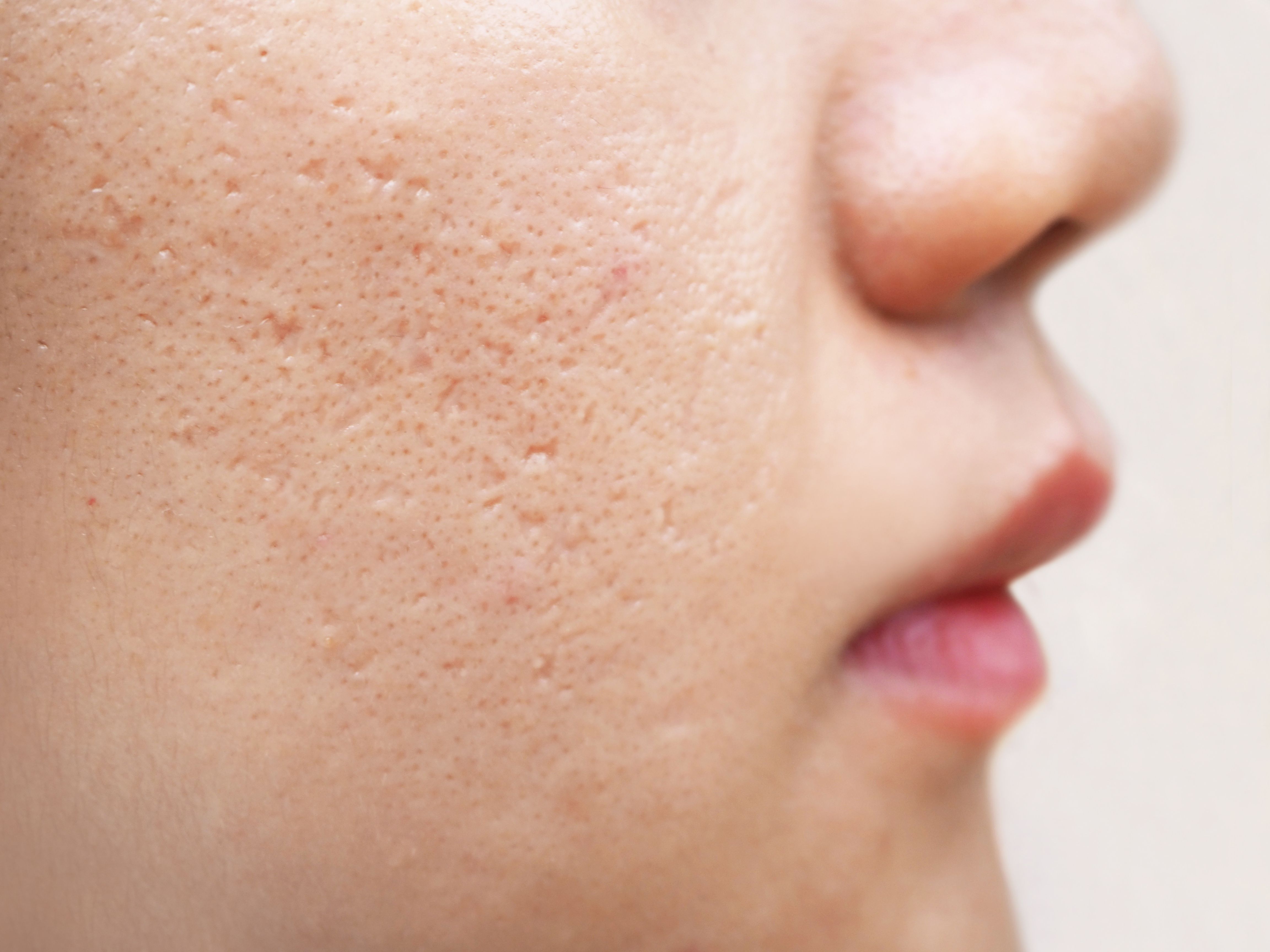- Acne
- Actinic Keratosis
- Aesthetics
- Alopecia
- Atopic Dermatitis
- Buy-and-Bill
- COVID-19
- Case-Based Roundtable
- Chronic Hand Eczema
- Chronic Spontaneous Urticaria
- Drug Watch
- Eczema
- General Dermatology
- Hidradenitis Suppurativa
- Melasma
- NP and PA
- Pediatric Dermatology
- Pigmentary Disorders
- Practice Management
- Precision Medicine and Biologics
- Prurigo Nodularis
- Psoriasis
- Psoriatic Arthritis
- Rare Disease
- Rosacea
- Skin Cancer
- Vitiligo
- Wound Care
Article
Diet, skin disease data growing
Author(s):
A growing number of studies suggest diet influences general skin health and specific skin diseases, from acne and eczema to skin aging. Dermatologists share their best practices for using diet to combat skin disease and promote skin health.
There are a growing number of studies to suggest diet influences general skin health and specific skin diseases, from acne and eczema to skin aging. It’s an important area for dermatologists to address with patients, according to experts.
READ: Counseling patients about fad diets

Dr. Katta“I think the first thing dermatologists need to know is that their patients really believe that there’s a link [between diet and skin health]. Our patients are looking at research studies and even popular magazines are reporting on some of these studies. So, it’s very important that we as dermatologists know about the evidence-based research that’s out there looking at this,” says Rajani Katta M.D., a dermatologist who practices in Bellaire, Texas.
Talking with patients about healthy eating is good medicine, says Metairie, La., dermatologist Patti Farris, M.D.
Counseling patients about healthy eating and avoiding, for example, high-glycemic foods is taking a more holistic approach to medicine. It addresses many skin issues, as well as getting back to healthy basics, according to Dr. Farris, author of the book The Sugar Detox (De Capo Press 2013).
Acne
The connections between diet and skin disease are probably most researched and established with acne, according to Dr. Farris.

Dr. Farris“The high-glycemic diets, or diets loaded with things that turn into sugar quickly, can trigger acne,” Dr. Farris says.
Dr. Katta says studies looking at acne patients on a low-glycemic index diet suggest a subset of acne patients will respond with improved acne. Researchers reported July 2007 in the Journal of Clinical Nutrition on a study of 43 male acne patients, ages 15 to 25 years. Subjects were on either a low-glycemic diet or in a control group for 12 weeks. The authors found the low-glycemic-load group had a lower total lesion count than controls, suggesting nutrition-related lifestyle factors may play a role in acne pathogenesis.
Whether or not dairy triggers acne is controversial. Dr. Katta says she will tell acne patients who are concerned about dairy that there is some evidence that dairy can worsen acne in some patients, and they can try to eliminate it.
“Studies suggest that diets that are high in skim milk, particularly in male patients, may be associated with acne flair-ups,” Dr. Farris says. “But we still need more definitive studies to link dairy and acne.”
In yet another small study of acne patients published August 2012 in Cutis, researchers reported whey protein, found in protein supplements including shakes, might be among the dairy products that promote acne formation.
“This was a small case series with five acne patients, which showed that patients flared with their acne after they started taking protein powder with whey,” Dr. Katta says. “But when they stopped taking the protein supplements, their acne improved. So, I think that’s more evidence that, in some people, dairy may serve as a trigger.”

Dr. JackninPatients concerned about acne flares from dairy, should make up potentially lost calcium by eating more calcium-rich vegetables, such as spinach or collard greens, according to Jeanette Jacknin, M.D., [link to her website: http://drjacknin.com/] a holistic dermatologist for 20 years, who is author of the book Smart Medicine for Your Skin (Penguin Putnam, 2001) and of the first three chapters on diet and nutrition in Integrative Dermatology (Oxford Press, 2013).
“Chocolate and fried, fatty foods have also been shown to flare acne. Limit foods which have high levels of iodine: iodized salt, fast foods, sea vegetables, kelp tablets, milk and shellfish. Evaluate for food sensitivities, which can also cause flare-ups of acne and need to be avoided,” Dr. Jacknin says.
Dr. Farris says that she addresses diet with most of her acne patients.
“I don’t think diet is the whole story, of course, but I think it’s a very important opportunity for a dermatologist to counsel a young person on better dietary choices,” Dr. Farris says.
Dr. Farris says she also recommends her acne patients consider taking probiotics (by supplement or food). Probiotics are antiinflammatory and might help to counteract side effects and minimize intolerance of antibiotic therapies, which many acne patients are on for periods of time, she says.
NEXT: Diet, eczema link
Eczema
Studies linking diet to eczema include studies about how food allergies can play a role in some patients with eczema, according to Dr. Katta.
“There has been promising research that prebiotics and probiotics, which can be found in food, can help some patients with eczema. The studies that have been done on probiotics usually have looked at supplements, but they’re all over the place in terms of what supplements they’ve looked at. The supplements can contain a single strain of bacteria or multiple strains of bacteria, and they can have different types of bacteria…. While some of the studies have been promising, there has really not been an answer as to which particular bacterial strain or combination of strains is best,” Dr. Katta says.
In a new study, published March 1, 2016 in JAMA Pediatrics, researchers conducted a review of studies on use of synbiotics, a mixture of prebiotics and probiotics, for treatment of children with atopic dermatitis. They report the metaanalysis supports the use of synbiotics for AD treatment--particularly synbiotics with mixed strains of bacteria and for children one year or older.
While most studies looking at probiotics and eczema have looked at subjects taking probiotic supplements, Dr. Katta says dermatologists should consider translating the findings to food for patients-telling them which foods might help.
“If you talk about foods with naturally occurring bacteria, we’re talking about fermented foods, such as sauerkraut and kimchi, which can contain live cultures if they’re unpasteurized. Or you can look for yogurt that contains live cultures. Kefir, which is a fermented dairy drink, or kombucha, which is a fermented tea--those are examples of foods that naturally contain live bacteria,” Dr. Katta says. “I think there’s enough promising research that it might help and, in most cases, it should not hurt.
Prebiotics are found in certain types of dietary fiber, which can be found in some vegetables (asparagus, for example).
The evidence that probiotics help calm skin conditions, such as eczema, is mixed, Dr. Farris says.
“So, it’s important to say to patients that we don’t have definitive studies, but I think probiotics can be helpful because they do downregulate inflammation systemically and seem to improve barrier function,” Dr. Farris says.
Eczema patients are among those who might also keep the good fats in their diets, according to Dr. Katta.
“If you go really low on your fat, it may affect your skin barrier, where you have drier and more sensitive skin,” Dr. Katta says.
Dr. Jacknin recommends that patients with eczema might benefit with reduced flares if they drink juice made from anti-inflammatory fruits and vegetables, such as black currants, red grapes, carrots, beets, spinach, celery, cucumber, parsley, green juices and wheatgrass.
“Dark green vegetables such as parsley, kale, cucumber, zucchini, green pepper and celery are very helpful,” Dr. Jacknin says.
NEXT: Diet, psoriasis link
Psoriasis
Diet is thought to be key in controlling psoriasis, both in terms of the many suspected sensitivities that may keep the skin reacting and as a major factor in determining the alkalinity of the blood, according to Dr. Jacknin.
“In two … reviews (Wolters M. 2005; Araujo ML. 2009) it was noted that omega-3, fasting, low-calorie and vegetarian diets improved psoriatic symptoms in some studies,” Dr. Jacknin says. “Each of these diets modify the polyunsaturated fatty acid metabolism and influence the eicosanoid profile, so that inflammatory processes are suppressed. Some patients with psoriasis also show an elevated sensitivity to gluten and improve after a gluten-free diet. In general, the whole foods diet with lots of fresh yellow and green vegetables, soybeans, chickpeas, lentils, black beans, sesame seeds, lean proteins and low-fat fish … is great for psoriatic patients.”
Whether or not dermatologists believe any specific food or food group impacts psoriasis, it’s still important that they counsel psoriasis patients about diet, according to Dr. Katta.
“I think it’s important that we talk with our psoriasis patients about diet because there has been a strong link between the presence of psoriasis and other inflammatory systemic conditions. Patients with psoriasis, independent of other risk factors, have higher risks for hypertension, diabetes, heart disease, and other types of inflammatory conditions,” Dr. Katta says. “We need to think about antiinflammatory foods to fight inflammation that may increase the risk of heart disease and diabetes.”
Skin aging
The same high-glycemic index diets that can trigger acne, also fuel skin aging, according to Dr. Farris.
High glycemic index foods can trigger glycation and glycation can impact protein molecules all over the body, including in the skin, she says.
“We know that collagen and elastin molecules in the skin become glycated when circulating blood sugar levels are high. Glycation also occur in photo-aged skin resulting in that sallow appearance that characterizes sun damage. Glycation is the non-enzymatic binding of sugar to proteins and results in the formation of advanced glycation end products or AGEs. Collagen and elastin molecules that are glycated become dysfunctional and lose their mechanical properties,” Dr. Farris says. “I counsel patients about the relationship between skin aging and diet. They’ll come in looking for a quick fix, [but that doesn’t help in the long run if] you haven’t addressed some of the simple things like minimizing sun exposure and following a healthy diet. I recommend lowering sugar and saturated fats and increasing consumption of fruits, vegetables and omega fatty acids. Again, this is good for you in so many ways, but also affects the way your skin ages in the long run.”
Diet can impact photoaging, according to Dr. Katta.
“There’s one really interesting study where people were given tomato paste for 10 weeks before they were exposed to ultraviolet radiation. Researchers found that there was less redness with the UV radiation than there would have been without the tomato paste; so, there was less sun damage,” Dr. Katta says.
Authors of the study, which was published May 2001 in the Journal of Nutrition, wrote, “… it is feasible to achieve protection against UV light-induced erythema by ingestion of a commonly consumed dietary source of lycopene.”
“There have been lots of studies in the laboratory and on animals that have found that different antioxidants can protect against some of the destructive effects of ultraviolet radiation. It’s hard to translate that to human studies because … we eat so many different types of food. It’s hard to pinpoint specific foods,” Dr. Katta says.
Dr. Farris says that counseling patients about photoprotection and skin aging is yet another opportunity to plug a healthy diet.
“I tell patients, the better you eat, the more fruits, vegetables and antioxidants you have in your diet, the more likely you are to get some photoprotection,” Dr. Farris says.
NEXT: Diet, skin health
Diet and skin health
There are plenty of studies in the literature about diet’s impact on skin disease, including studies by independent scientists on the Mediterranean diet, an anti-inflammatory diet and a low glycemic diet, according to Dr. Jacknin.
“The Mediterranean diet is beneficial for the skin, as its anti-inflammatory effect is due in part to its emphasis on extra virgin olive oil, which is high in compounds that modulate oxidative stress and quell inflammatory reactions,” Dr. Jacknin says. “Oleocanthal, one of the components of olive oil, has been recently been shown to possess anti-inflammatory actions similar to ibuprofen. It has been suggested that a nutritional approach to sun protection using the Mediterranean diet would be a useful complement to externally applied sun protection strategies….”
Dermatologists need to emphasize to their patients that they can, in part, control their overall skin health and appearance through diet, Dr. Jacknin says.
“To maintain healthy skin, one’s diet must be rich in antioxidants, which are also anti-inflammatory,” Dr. Jacknin says. “Free radical damage has been shown to be an important factor in the aging process and in the development of cancer. It is also thought to be the root cause of wrinkles and aging skin with sagging, discoloration, enlarged pores, and lack of radiance. The North American diet contains excessive amounts of simple carbohydrates and saturated fats, which has been shown numerous times to correlate with an increased appearance of skin wrinkles.”
To help keep skin well hydrated, dermatologists should recommend patients drink a minimum of eight glasses of pure or sparkling water a day and limit dehydrating coffee, alcohol and colas. “Eat fish, rolled oats and ground flaxseeds frequently, as they are high in omega-3 essential fatty acids which help the skin to retain moisture,” Dr. Jacknin says. “Grapes, berries, plums, pears, and seaweeds and algae contain sorbitol which helps the skin retain moisture.”
Newsletter
Like what you’re reading? Subscribe to Dermatology Times for weekly updates on therapies, innovations, and real-world practice tips.











